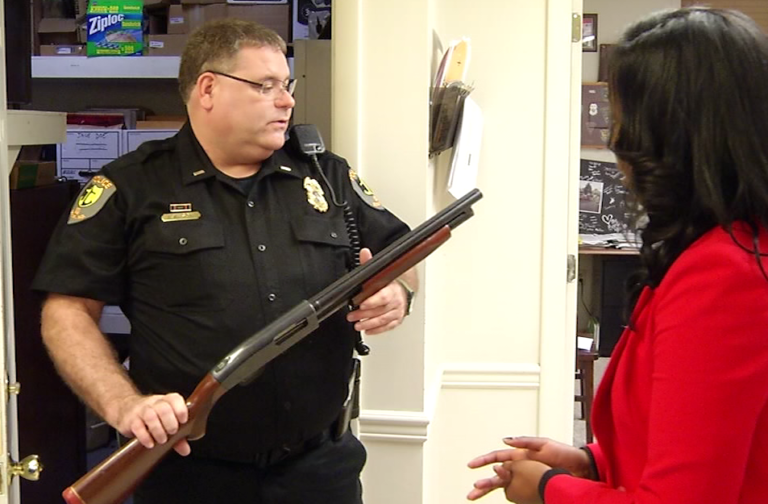Local police department explains gun confiscation policy

Berlin Police Lieutenant J.D. Lawson is a firearm instructor and has been for the past 20 years. He says his department has had a firearms confiscation policy for as far back as he can remember.
This is unlike sixty percent of the two- hundred and sixty- six agencies recently surveyed by the Police Executive Research Forum.
Lt. Lawson says, “Well obviously if a firearm is used in a crime and it’s evidence, it will be seized.”
That’s the baseline of their policy. However, it updates overtime corresponding with state or federal mandates. The most recent change was in 2004 incorporating domestic violence.
Lt. Lawson goes on, “When a person goes and obtains a domestic violence petition against another individual then the judge and or commissioner mandate that the fire arms are seized .”
If a firearm is exposed and unattended, officers in Berlin treat it like a property of value, such as a lost wallet. Lt. Lawson continues, “A piece of identification, some type of electronic device, a phone.”
In that case the weapon is seized, but it’s put in holding so the owner doesn’t have to go through the courts to get it returned.
Some analysts of the Police Executive Research Forum survey say the reason agencies may not have a policy is out of fear of violating the second amendment right to bear arms and getting slapped with a lawsuit.
However, Lieutenant Lawson says they’re not worried about that.
He continues, “That is not a concern of our agency. Safety as well as common sense is the first approach.”
When a weapon is seized at the Berlin Police Department a number of things can happen. For example, a judge can ask for it to be destroyed, it can be converted for department use, or it can be sold back to a dealer.


